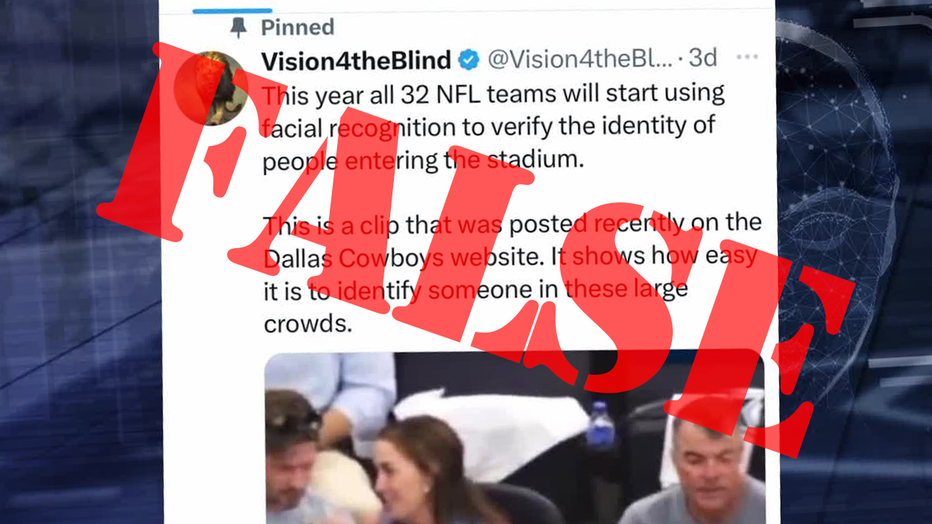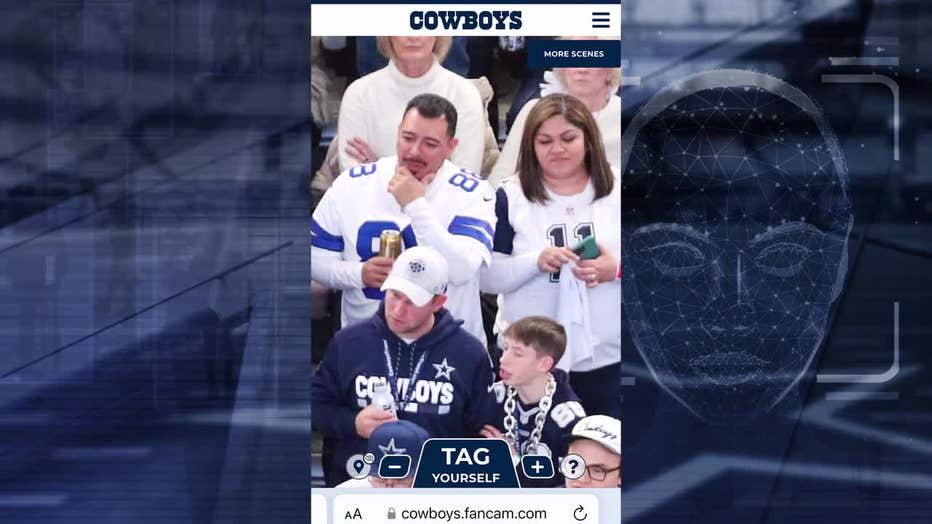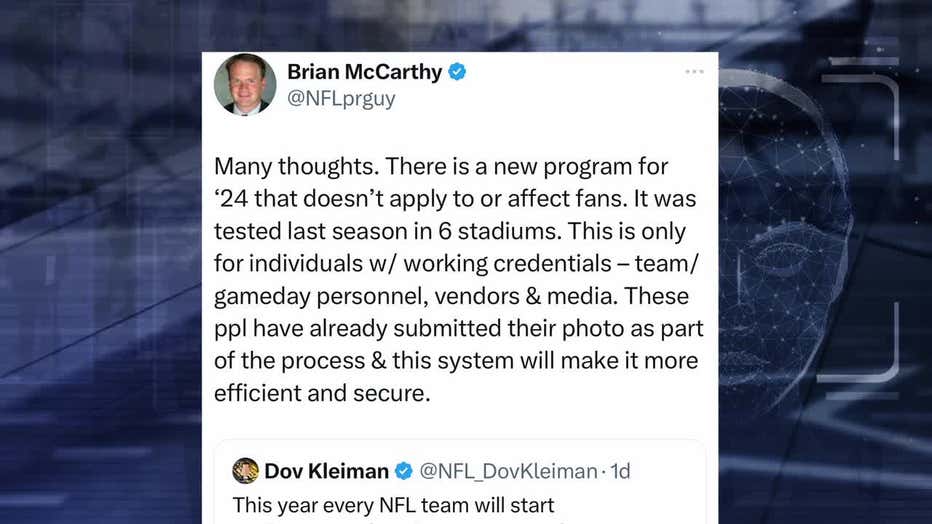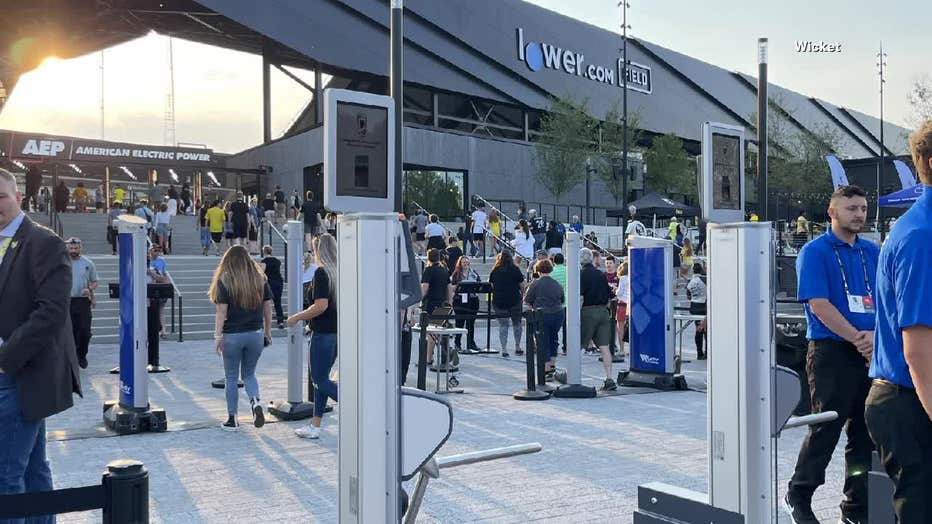No, the NFL isn't using facial recognition software to monitor fans
Post claims NFL to use facial recognition on fans
The internet is abuzz over a tweet claiming the Cowboys and NFL were set to use facial recognition on fans. The problem is — that’s not true. The false post gained thousands of shares while te factual post from the NFL’s PR rep only got 24 shares.
DALLAS - Misinformation can spread quickly on social media.
Over the weekend, multiple posts claimed the Cowboys and the NFL would use facial recognition to monitor fans.
The inaccurate posts gained thousands of shares. The factual post from the NFL’s PR rep only got 24 shares.
It speaks to the larger conversation about false information and influencing what people think about sensitive topics.
Aside from talking about Dak Prescott and the Cowboys training in Oxnard, fans on social media were talking about a tweet claiming the Cowboys and NFL were set to use facial recognition on fans.

The problem is--that’s not true.
The false post was shared thousands of times and reached 8 million users.
"It's not, ‘The pope endorses Donald Trump.’ But it's something that has been taken out of context," said Jennifer Allen, a postdoctoral researcher at the University of Pennsylvania. "This fan cam that's been taken out of context and presented as something nefarious, facial recognition that then is able to gain a lot of traction without kind of all this background context on social media."
Featured
The Dallas Cowboys aren't just America's Team, they're the world's team
There's proof that the Dallas Cowboys truly are America's Team... and a bit more.
The fan cam video is nothing new. The Cowboys and other sports franchises allow fans to go online, pick a game date and locate and tag themselves. But in this case, it was used out of context.

The NFL’s facial recognition system, Wicket, is completely separate. It’s for people with secure credentials, like media, vendors and mage day personnel, who have already submitted photo IDs. It is powered by artificial intelligence.
It was tested last season with six NFL teams and now will be at 32 stadiums.
The post explaining the difference from a legitimate NFL source got a lot less attention.

"So the correction might be out there, but it doesn't actually reach the people who need to see it," Allen said.
Allen, who will teach at NYU in 2025, says she has seen this type of twisted narrative before.
"It's not that these stories didn't happen. There's maybe some kernel of truth. But there is this missing context," she said. "This kind of misleading framing is super harmful and even potentially more harmful in many cases than the kind of most outright fake false stuff."

Allen’s research exposed misinformation connecting rare deaths to COVID-19 vaccinations. She says we are going to see more false and misleading claims on social media sites like X and points to the platform’s owner, Elon Musk.
"I think there's an example of him posting a story about Kamala Harris that was initially posted as a parody video, where it's kind of a deepfake of Kamala Harris's voice. But he is reposting it and saying, ‘Look how crazy she is’, essentially," Allen said. "And so stories like this where it's really kind of misinformation coming from the top, it's misleading stories coming from really influential figures is what I am kind of most worried about leading up to the election."
It may sound elementary, but Allen suggests you make sure to consume information from reputable sources.
California residents questioned about Cowboys
The Dallas Cowboys are in Oxnard for camp, but California locals are less than enthused.


